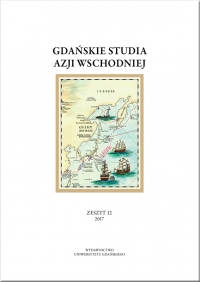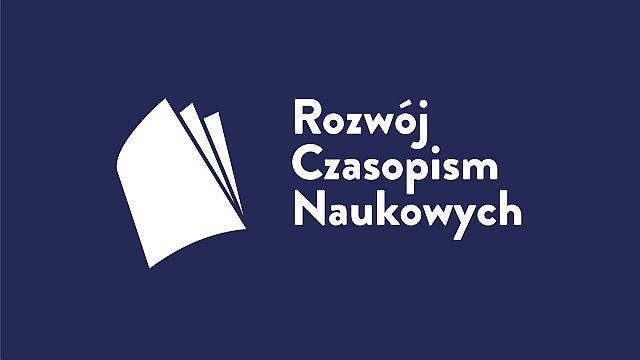Światło ze Wschodu. O "Esejach nie całkiem polskich" Tokimasy Sekiguchiego
Abstrakt
The article discusses thoroughly the book “Eseje nie całkiem polskie” [Not Entirely Polish Essays] by Tokimasa Sekiguchi, a professor at Tokyo University of Foreign Studies. In his book, the author focuses on the issue of transculturality. The book consists of three parts. The first is mostly about historical and literary contexts. Sekiguchi writes about different aspects of works by Herbert, Miłosz and Szymborska. The second part is actually one essay entitled “Asia Does Not Exist”. Two issues are worthy of attention in this part. On the one hand, we can see Sekiguchi as a precursor of Postcolonial Studies; on the other, we see quite an original take on problems known from such classic works like “Orientalism” by E.W. Said. The third part of Sekiguchi’s book has a slightly different character. The essays here are more personal, and some of them could be read as a semi-literary works. A very thorough study of the essays leads the author of the article to the conclusion that the pivotal aspect of Sekiguchi’s work is a change of perspective: while Sekiguchi looks at Poland’s internal affairs from the outside, he has a lot to say to us, Poles and to other nations as well.
Downloads
Bibliografia
T. Sekiguchi, Eseje nie całkiem polskie, Universitas, Kraków 2016.
B. Morcinek, Spotkania polonistyk trzech krajów: Chiny – Korea – Japonia, „Postscriptum Polonistyczne” 2010, nr 2 (6).
T. Splisgart, Studia polonistyczne w Japonii. Historia oraz perspektywy rozwoju, „Gdańskie Studia Azji Wschodniej” 2013, z. 3.
Y. Kohanofusuki, Banka, przeł. T. Sekiguchi, Tōkyō 2013.
A. Mitsukiēvichi, Barādo to romansu, przeł. T. Sekiguchi, Tōkyō 2014.
S.I. Vitokyēvichi, Vitokatsi no gikyoku yonpen, Tōkyō 2015.
S. An-Suki, Dibukku, przeł. M. Akao, V. Gonburōvichi, Burugunto kōjo Ivona, red. M. Nishi, Tōkyō 2015.
Ibashukiebitchi, Nisō Yoanna, przeł. T. Sekiguchi, Tōkyō 1997.
Z. Helman, Z. Skowron, H. Wróblewska-Straus, Shopan zenshokan 1816–1831 nen – Pōrando Jidai, przeł. T. Sekiguchi, M. Shigekawa, R. Hiraiwa, S. Nishida, Tokio 2011.
Ch. Miuoshu, Pōrando bungakushi, przeł. T. Sekiguchi, Tōkyō 2006.
T. Sekiguchi, Teksty polskie w kontekstach pozapolskich [w:] idem, Eseje nie całkiem polskie, Universitas, Kraków 2016.
Ch. Miuoshu, Chesuwafu Miuoshu shishū, przeł. H. Ogura, red. T. Sekiguchi, M. Numano, Yokohama 2011.
T. Sekiguchi, Pōrando to tasha: bunka-retorikku-chizu, Tōkyō 2014.
W. Szymborska, Wielka liczba, Warszawa 1976.
S. Skorupka, Słownik frazeologiczny języka polskiego, wyd. 6, t. 2, Warszawa 1989.
W.M. Miller Jr., A Canticle for Leibowitz, New York 1959.
J.S. Bystroń, Megalomania narodowa. Źródła – teorie – skutki, „Przegląd Współczesny” 1923, R. II, t. 7.
D. Seweryn, Prehistoria, średniowiecze, romantyzm. W kręgu indoeuropejskich tematów mitologicznych. Od Dumézila do Słowackiego, Warszawa 2014.
Zinkiw I., Bandura jak istorycznyj instrument, Kyjiw 2013.
Wu Lan, Recepcja literatury polskiej w Chinach: teoria i dzieje, „Postscriptum Polonistyczne” 2016, nr 2 (18).
A. Pajdzińska, Dzieci Heraklita (poeci o czasie) [w:] Kreowanie świata w tekstach, red. A.M. Lewicki, R. Tokarski, Lublin 1995.
Chwalba A., Obyczaje w Polsce: od średniowiecza do czasów współczesnych, Warszawa 2006.
F. Chopin, Korespondencja Fryderyka Chopina, oprac. Z. Helman, Z. Skowron, H. Wróblewska-Straus, Warszawa 2009.
W. Chlebda, Kiedy swój staje się obcym, „Etnolingwistyka” 2007, t. 19.
Z. Topolińska, Zmiana perspektywy. Gawęda nie tylko językoznawcza, Kraków 2015.

 Uniwersyteckie Czasopisma Naukowe
Uniwersyteckie Czasopisma Naukowe





